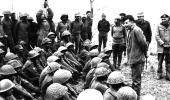'After he died, the phrase that struck me most about him was that 'Sam restored the izaat of the Army'.'
Field Marshal Sam Manekshaw's grandson Raoul-Sam Daruwala remembers the man behind the uniform.
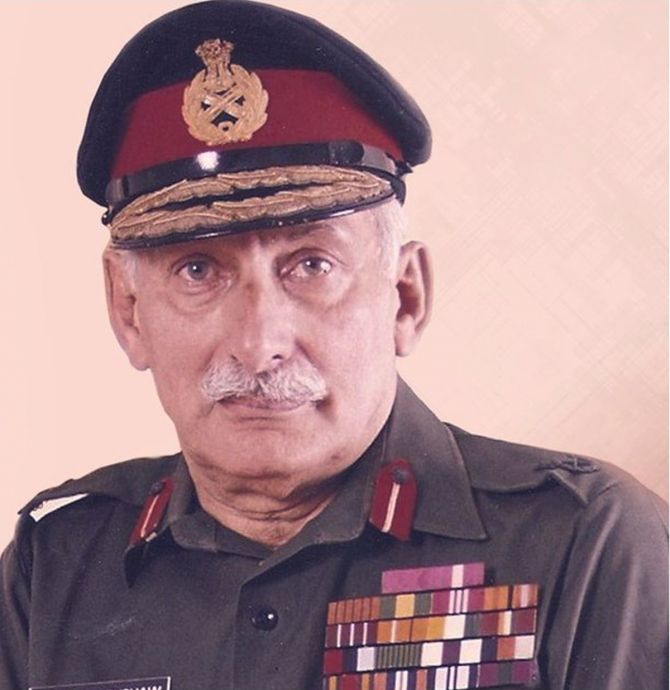
Field Marshal Sam Hormusji Framji Jamshedji Manekshaw led India to its biggest military victory in the 1971 War.
A brilliant leader of men, he was India's first field marshal and a legendary soldier.
Two people who knew him closely were his grandsons Raoul-Sam Daruwala and Jehan Manekshaw.
"He really loved the Army. I don't think anyone who hasn't been in the army can understand what that feels like," says grandson Raoul-Sam Daruwala, a PhD in computer science who joined a start-up 16 years ago and lives in the United States.
"Sam was a Field Marshal and that meant a lot to him. The rank was a tremendous honour, the product of a career that he was so proud of."
"He knew that it was a form of recognition for all who served under him in 1971."
"I'm sure he would have been humbled to have received the Bharat Ratna, because so many great Indians had received one before him. But, to those who feel he's been slighted, I don't think he took it personally at all," he tells Rediff.com's Archana Masih in an interview over WhatsApp where he shares memories of his grandfather.
Did Field Marshal Manekshaw's home in Coonoor have a lot of memorabilia from his days as a soldier?
Not really. My grandmother was the decorator. Most of the memorabilia went to people who were interested in keeping it.
He also didn't really want to put a lot of weaponry in front of his grand-children. We never once saw a gun in the house.
I once found an official album of pictures from the 1971 War, some of the images weren't for younger eyes. It disappeared the next day.
Did men who had served with him or men who joined service after him come to see him? How often did you hear him speak in Gorkhali, Hindi, Punjabi -- languages other than English?
I was three years old when he was promoted to Field Marshal so I never really knew him as 'the Chief'.
Over the years I'd spent time with him in Coonoor, New Delhi, Mumbai.
We'd bump into servicemen all the time and during those conversations he spoke Hindi, Punjabi and Gorkhali fluently.
He was always joking and laughing in languages I didn't know. I suspect I was the punchline in some of the jokes.
If someone had served under him directly, he'd remember just about everything about their careers in the army as well as the little details about their families.
I think he also spoke Pashtu (to some degree of fluency) from his time with the Frontier Force.
The evenings with the family were full of Gujarati stories.
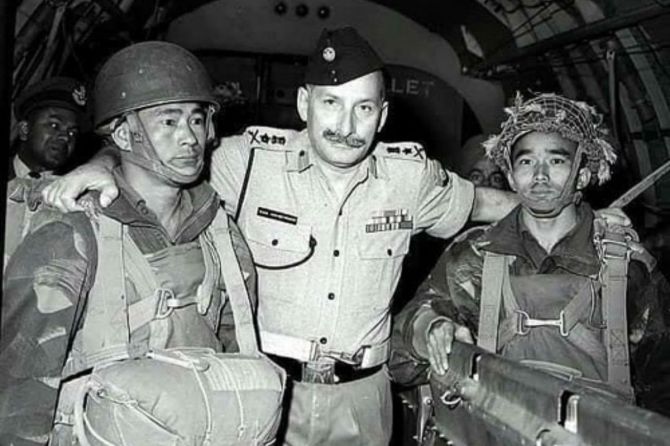
What was his routine like? What were his interests?
He'd wake up at 5 am, sit down at his typewriter and then do all of his correspondence.
He had a few portable typewriters that he loved to work on. He'd open and reply to every letter sent his way. He'd get his work done early and then spend the rest of his time reading, gardening, telling stories and being a family man
He is known as the soldier's soldier -- what was about him that made him connect so beautifully with that soldier on the ground or that soldier in the trench?
He really loved the army. I don't think anyone who hasn't been in the army can understand what that feels like.
I would get glimpses of it from the usual stories that people told me about him, or him about that life. But most of all you'd just see a difference in how totally engaged he was with people who had served with him.
After he died the phrase that struck me most about him was that 'Sam restored the izaat of the Army.'
I had to look that up, when I did it made perfect sense to me.
He was honourable, fair and respectful of his troops.
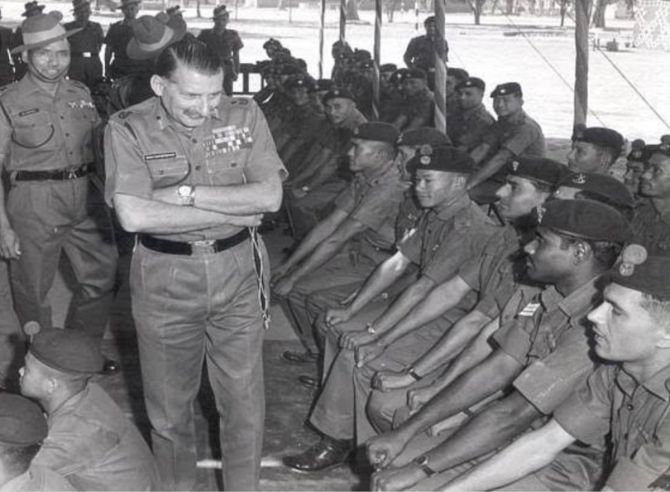
What are the lessons you have learnt from him?
Lessons taught by example:
Speak truth to power. He wasn't afraid of telling people that they were wrong. It isn't always easy but that doesn't mean you shouldn't do it. In my life, it's nearly always paid dividends.
Be respectful of those who are less privileged than you are. He always had time for the enlisted men.
Endeavour to get things 100% right, 100% of the time.
He was a perfectionist.
Do everything with a smile. It's so much easier than picking a fight. He also had a very disarming smile.
Enjoy your family. Enjoy yourself. Enjoy your friends.
Did he come to visit you in America? What did he say about your career?
No, he never came to the US.
He didn't really care one way or another about what I did for a living as long as it would make me happy.
What is it that you miss most about him?
I miss his company all the time. I also really miss going to every dhaba in sight in search of the best puris or rogan josh.
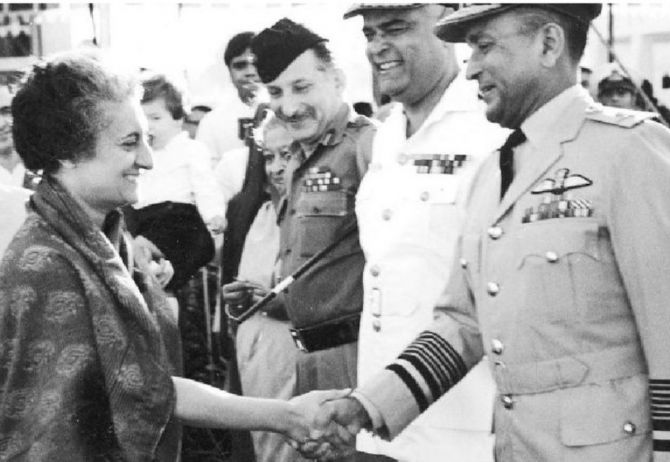
Do you think he got his due in later years? Do you think he should be awarded the Bharat Ratna?
Sam was a Field Marshal and that meant a lot to him. The rank was a tremendous honour, the product of a career that he was so proud of.
He knew that it was a form of recognition for all who served under him in 1971.
I'm sure he would have been humbled to have received the Bharat Ratna, because so many great Indians had received one before him. But, to those who feel he's been slighted, I don't think he took it personally at all.
I took an awfully long time to complete my doctorate. He'd tease me all the time about how long it was taking me.
He'd been offered an honorary doctorate a number of times and turned them down saying, 'Son, how can I get my PhD before you do? Hurry up and finish it, won't you?'
I still took the slow route, but I did get there.
After I completed my PhD, he wrote to tell me that he accepted his.
I have both of our certificates. I plan to frame them together.
Feature Presentation: Aslam Hunani/Rediff.com

